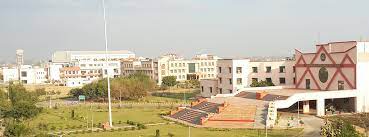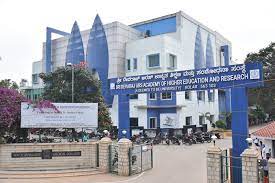A Ph.D. in Pathology is a Ph.D. in medicine that prepares students to conduct research that helps improve the lives of people around the world. The program combines all aspects of biomedical science and focuses on the study of disease. This advanced degree is an excellent choice for individuals who wish to contribute to breakthrough scientific research and expand biomedical knowledge. It can also prepare students to become postdoctoral fellows or run a laboratory as a principal investigator. Graduates may also work to influence science policy at the national and international levels.
A Ph.D. in Pathology is a comprehensive program that combines all areas of biomedical science. The degree prepares students for a career in advanced research and advanced academic positions. This program is structured to help students incorporate two regions of study.
Coursework in these fields typically covers topics in biochemistry, molecular biology, genetics, pharmacology, and microbiology. In addition to the core curriculum, Ph.D. students will also take courses in path biology and physiology. Elective courses are chosen in consultation with their departmental adviser. The dissertation is required to be completed during the last year of the program.
Eligibility:
Candidates who want to take admission in Ph.D. must have a post-graduate degree in pathology with at least 55% marks from a recognized university and must have passed the national level entrance examination or university level entrance examination. National level entrance exams like UGC NET / UGC CSIR NET / GATE / SLET or University entrance exams consist of written tests and personal interviews.
Why do you need a Ph.D. in Pathology subject?
The program also requires candidates to complete all required coursework, choose a dissertation laboratory, and present their research progress at a colloquium. If you're considering a career in pathology, you can find a career in a field that you love.
A doctorate in Pathology is an excellent way to improve your knowledge of disease mechanisms and treatment. It provides comprehensive training in disease mechanisms and prepares graduates to pursue sub-specialized research. There are many career opportunities in pathology after completing a Ph.D. The degree will allow you to specialize in a particular area and advance your career. It will prepare you for advanced academic research as well as positions in the industry.
The Ph.D. in Pathology is a comprehensive degree program in the study of disease. It involves integrating all aspects of biomedical science and developing methods of diagnosis and treatment. As a graduate, you'll gain experience in a variety of fields, including teaching, research, and scholarly activities. You will be trained to conduct independent research and to be a researcher. You'll have the opportunity to choose a specialization in pathology or focus on an area of interest.
A Ph.D. in Pathology is a doctorate degree that offers students thorough training in the study of disease mechanisms. The program prepares students for advanced careers in academia or in industry. The curriculum for a Ph.D. in Pathology varies depending on the institution's requirements, but it is usually necessary to have a bachelor's degree and a master's degree before pursuing this degree. You should also be aware that the coursework will be demanding and will include many research papers, but your thesis will provide you with a comprehensive education.
Benefits of Ph.D. in Pathology
Graduate students in the Department of Pathology are part of the Division of Biomedical Sciences, which offers a comprehensive Career and Professional Development Program. The program is designed to help students develop the skills and knowledge necessary to pursue a career in pathology. This includes taking courses in grant writing, teaching other graduate students, and presenting original research. In addition, the graduate school offers a thriving research community.
The Department of Pathology is an interdisciplinary discipline that links molecular, cellular, and genetic approaches to disease. Graduates of the program are able to apply this knowledge to a variety of fields, including translational and clinical research. As a result, they can become leaders in the field. As a graduate, you will have access to the latest information on disease research and the latest treatments for patients.
With a Ph.D. In Pathology, you'll gain valuable knowledge about the underlying biology and molecular principles of disease. The course also enables you to become more knowledgeable about stem cells, cancer, and other aspects of cell biology. As a result, you'll have the skills needed to excel in a number of fields. A Ph.D. in Pathology can help you advance your career in an innovative way.
Future scope of Ph.D. in Pathology
The job scope of pathologists is excellent. A pathologist's reports are often used as proof of deformity or illness. They study tumors and other internal deformities of cells and tissues. Students who pursue a Ph.D. in Pathology must possess a keen eye for detail. Even the slightest error can have huge consequences. Those who pursue a Ph.D. in this field must have the right qualifications and experience to succeed in the field.
Career options are plentiful for pathologists. They can specialize in a particular branch of histopathology or cytopathology, or they can work in an academic organization dealing with their area of expertise. Clinical pathologists can work in hospitals or clinics, perform research, or serve as teachers at colleges. Those who choose a career in academic pathology may join government agencies, leading universities, or corporate organizations.
As the world's population continues to grow, the need for pathologists increases. They can practice as a solo practitioner or in a group practice, or they can teach in a college or university. Many private hospitals hire pathologists. In addition, pathologists can work in medical clinics. The main advantage of a career in pathology is the job security it offers. The future scope of a Ph.D. in Pathology is bright. With many opportunities to find employment, a Ph.D. in Pathology can be the key to your future success.
Career and job opportunities with Ph.D. Pathology
A Ph.D. in pathology focuses on the study of pathology, a branch of biomedical sciences that uses the biological sciences to develop diagnostic and therapeutic methods for diseases.
A doctorate in pathology is highly specialized, and candidates tend to focus on advanced biology or biochemistry.
The program usually requires students to take a range of pre-med courses, including microbiology, chemistry, human anatomy, and advanced mathematics and statistics. Most medical schools require a minimum grade point average, and top candidates may be admitted without a supplemental application.
After obtaining a doctorate, a pathologist may choose to work in clinical laboratories, hospitals, or academic institutions.
In addition to practicing pathology, a pathologist can do research and teach the fundamentals of the field.
A Ph.D. in pathology can be valuable in the field of biomedical science since it provides insight into the causes, diagnosis, and treatment of various diseases.
Some pathologists specialize in cancer, Lyme disease, and neurological trauma, as well as hypertension and tuberculosis.
After completing a Ph.D. in pathology, you can begin a career in academia or clinical laboratories. The field is growing, and an MD with a Ph.D. is highly sought-after.
A doctorate in pathology allows you to specialize in a specific area of the discipline, and a Ph.D. enables you to make a valuable contribution to the medical field.
Course Duration:
The Ph.D. pathology course is a minimum of 3 years and a maximum of 5 duration. This depends on the university offering the course.
Course Fees:
The average fee for a Ph.D. pathology degree is between INR 50000 and INR 500000.
 5 Years
5 Years
 PhD
PhD
 Research
Research

































 back
back